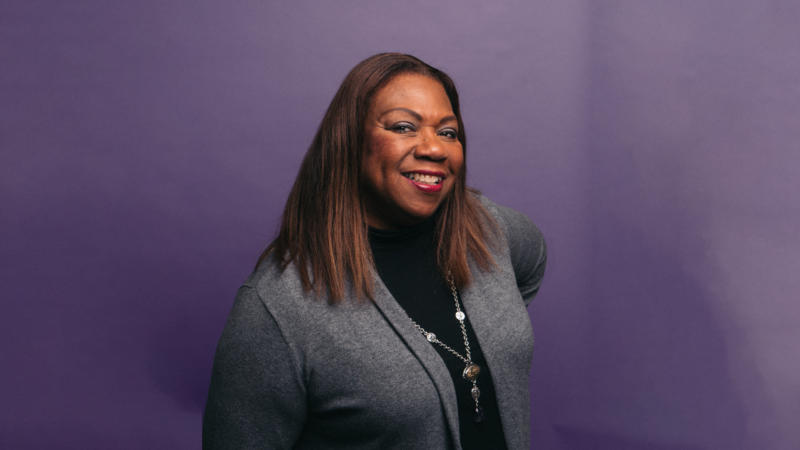Black engineers made up for only six percent of computer programmers across the nation in 2020, compared to white engineers accounting for 68 percent, the U.S. Bureau of Labor Statistics reported.
Karat, a technical interviewing company, released a new research report in partnership with Howard University (HU) that explores the job access barrier for Black software engineers. The pair teamed up to host focus groups earlier this year to survey 300 Black computer science students and alumni from Howard University, Morehouse College and University of North Carolina Charlotte. The Interview Access Gap for Black Engineers report is co-authored by Dr. Legand Burge, III, a computer science professor at HU; Dr. Katherine Picho-Kiroga, assistant professor of educational psychology at HU; and Portia Kibble Smith, head of diversity and inclusion at Karat.
“There’s been a lot of research conducted on STEM education and the opportunity gaps that exist for Black students,” Kibble Smith told AfroTech. “There’s also a lot of data about the lack of diversity in tech. This research looks at why many tech companies struggle in their diversity recruiting efforts by exploring the key moment that unlocks opportunity for people to grow in their careers: the interview.”
Participants shared in-depth feedback and challenges that they face in the tech job market. Karat and HU’s most prominent finding is that Black computer science students feel more confident entering the tech industry if they’ve had interview practice. Only 39 percent of survey participants with no interview practice experience said they felt somewhat likely to succeed in the job market.
The research also shows that proximity and access to tech professionals help increase interview confidence for minority computer science students.
“The shortage of Black engineers in the industry today is a compounding problem. Many HBCU students, especially first-generation ones, don’t have friends and family who work in tech,” Dr. Burge told AfroTech. “They don’t have people to ask about the interview process, and they don’t walk into the room with a heads up about what questions are being asked.”
Here are some other key findings from the report:
- Nearly 75 percent of participants said they know fewer than five people working in big tech, while more than 25 percent know none at all.
- Fifty-five percent of survey respondents who have taken more than three practice interviews have had an engineering internship, compared to nine percent of those who have never had one.
- Eighty-three percent of participants said they know fewer than five people working at startups.
- Forty-three percent of participants said they have no tech contacts.
- Only 40 percent of Black technologists negotiate their compensation compared to 51 percent of white technologists.
“The lack of representation of Black engineers in tech is a barrier to entry for the next generation,” Kibble Smith said in a press release. “A lot of the HBCU students we interviewed are first-generation college students. They don’t have a clear understanding of what goes on in a technical interview until they’re interviewing for their first engineering internship, and they don’t have anyone in their networks to help them prepare.”
Structural inequalities delay exposure to computer science education, the report states, but the tech industry needs more Black software engineers. For companies, Kibble Smith said increasing transparency in the hiring process, building practice into the interviewing process, and creating support and mentorship would help set Black employees up for success on the job.
Black software engineers looking to boost their confidence in the industry can tap into a program called Brilliant Black Minds, which provides free practice technical interviews, live feedback, and career development workshops. Karat teamed up with HU to launch the program last year, and Dr. Burge said more than 75 percent of upper class computer science students at HU participated in the program during the fall.
“This is how real change in tech happens. Cutting-edge companies bring their people and resources to the table in ways that truly open doors for others,” Dr. Burge said. “As a Black engineer and educator, I believe it’s this sort of commitment that can have a transformational impact for my students, thousands more, and the industry as a whole.”


